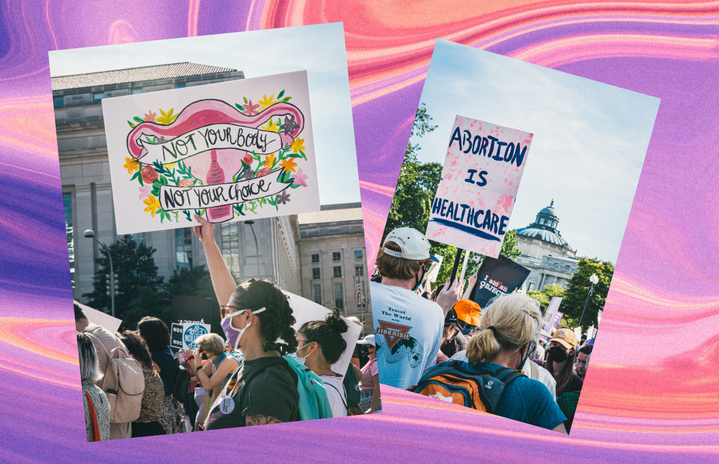On December 1, the U.S. Supreme Court heard a case concerning a Mississippi law that bans abortions after 15 weeks and challenges the Roe v. Wade decision. In September, you likely heard the devastating news about Texas’s abortion bill which blocks abortion procedures that occur past the six-week mark of pregnancy. This legislation is officially the most restrictive abortion law in the country and has potentially set a dangerous precedent. Will more restrictive laws emerge across the country as a result?
Senate Bill 8, the official name of Texas’s six-week abortion ban, came into effect on September 1, 2021. It has since stayed in effect — much to the dismay of women in the state of Texas and nationwide. Senate Bill 8 is often referred to as Texas’s “heartbeat bill,” as the legislation’s foundation is based on the premise that an embryo’s cardiac activity is detected at the six-week mark of gestation — thus blocking an abortion procedure from occurring. However, this term is deemed medically inaccurate by many reproductive health experts who firmly state that embryos do not have developed hearts at this particular stage of the developmental process. Rather, the term “heartbeat bill” seems to have been adopted as a branding strategy by the legislative organizers with the hope of garnering further support.
Unfortunately, the bill is garnering support with many states discussing the prospect of passing similar legislation. The danger of other conservative-led states following in Texas’s footsteps weighs heavy on the minds of women across America, as they fear their own state governments soon denying them access to healthcare. This is being amplified further as the Supreme Court discusses the Mississippi law, and women are reminded that leaders do not always have their best interests in mind.
As if a global pandemic, massive numbers of racial inequality and abuse throughout the country, climate change, and citizens warring over a life-saving vaccine weren’t enough, we’re now adding women’s rights and abortion into the mix. Why are we still debating women’s reproductive rights in 2021? Why are we so focused on reverting to a nation of the past?
Perhaps it’s because political parties are so deeply at war with one another that we can’t even focus on passing necessary legislation without the potential of a government shutdown. Party lines have been wrought with disdain for one another, particularly since the emergence of COVID-19 and the 2020 election. Now that abortion rights have been reignited as a sizzling hot-button topic, the issue is being discussed more than ever. It even became a subject at gubernatorial debates earlier this fall. I am a firm believer in not becoming a single-issue voter, but this topic will certainly ring in my ears — as well as in the ears of many other U.S. citizens during future elections — when casting their ballots. Please, register to vote if you haven’t already. State and local government elections are more impactful on our individual lives than we know, yet they have a lower turnout. If Texas’s bill and the current Supreme Court hearings are teaching us anything, it’s that we should all be paying attention to who we put in charge — especially when they have the power to directly influence women’s reproductive rights. When you prepare to vote in future elections, pay close attention to the people who you are entrusting with power.
Currently, the Supreme Court is hearing oral arguments in the most significant abortion case in nearly 50 years. Yesterday, after nearly two hours of arguments, the Supreme Court’s six conservative justices indicated that they could uphold Mississippi’s abortion ban and could entirely overturn Roe v. Wade, which gives women the right to safe, legal abortion. This would be a giant reversal of Supreme Court precedent.
While a decision from the Supreme Court isn’t expected until June 2022, the ban could cause profound damage to women’s rights and equality. And if the court overturns Roe, at least twelve states have trigger laws” in place that would immediately outlaw abortion if given the thumbs up. So, in a matter of months, women across the U.S. could have less control over their healthcare than previous generations.
The recent discussion of abortion rights has reached far outside of the U.S. too. Mexico, a historically Catholic and conservative country, recently voted in their Supreme Court to decriminalize abortions. Now, in a grand twist of irony that only 2021 can bring to the table, Texans may find themselves traveling across the border to receive an abortion.
According to the New York Times, Mexico finally earned the right to abortion access without criminal penalties largely in part by the efforts of women across the nation who, “forced women’s rights to be a topic at the dinner table…by protesting in a visible way…occupying federal buildings, occupying Congresses, demanding lawmakers listen to them.” Perhaps Mexico may be an example of the Texas abortion bill having different effects — where women across the nation who fear the reversal of abortion rights legislation can take action to help protect their own access to healthcare. Who knows? This legislation could even spark progressive action as other governments rally around women and what should be their undeniable rights.
Despite the tragedy that our government is continuing to debate women’s reproductive rights in 2021, it’s never too late to get involved and take steps toward positive change for women. Now more than ever, it’s time to pay attention to your local and state elections and educate yourself on the laws and policies surrounding women’s reproductive rights. Does your area have restrictive laws? Are there resources, community centers, or ways to advocate for women’s rights where you live? Whether it’s researching your state laws, volunteering for Planned Parenthood, registering to vote and staying up-to-date on elections, or encouraging others in your community to get involved, don’t be afraid to make your voice heard. While the future can feel bleak, change begins with us.
Resources
Center for Reproductive Rights
Planned Parenthood
American Civil Liberties Union (ACLU)
National Latina Institute for Reproductive Health
National Women’s Health Network


